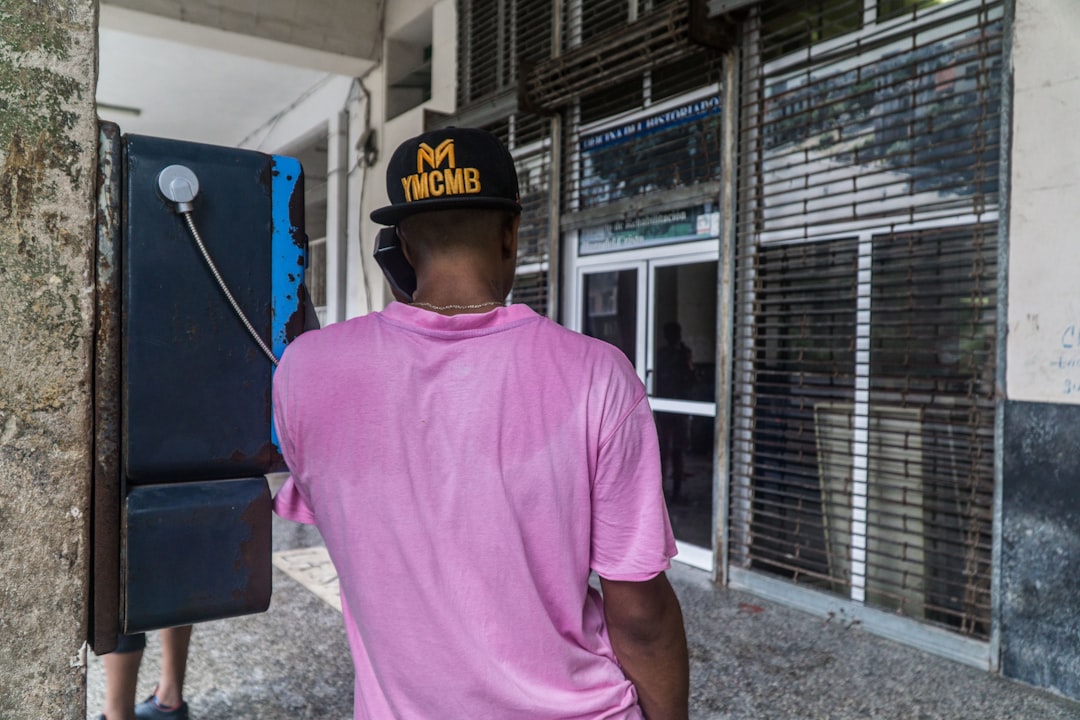New York's robust robocall laws empower residents to block unwanted marketing calls and texts by requiring explicit consent and restricting prerecorded messages. Using call-blocking apps with AI and staying informed about local regulations helps New Yorkers protect their privacy from prevalent robocalls in a bustling urban environment.
In New York, understanding and adhering to strict robocall laws is essential for residents looking to curb unwanted calls and texts. With evolving regulations in place, effective blocking apps have become a game-changer for maintaining privacy. This comprehensive guide explores the intricacies of New York’s robocall laws, equips readers with tools like top-rated blocking apps, and offers best practices to ensure safe navigation through the digital landscape. Discover how these measures can protect you from intrusive robocalls and texts.
Understanding Robocall Regulations in New York

In New York, the regulations surrounding robocalls and automated texts are primarily governed by state laws and industry guidelines. The New York State Attorney General’s Office plays a pivotal role in enforcing these rules to protect consumers from unwanted and deceptive telemarketing practices. According to the New York Telephone Consumer Protection Act, companies must obtain explicit consent from recipients before initiating automated calls or sending text messages for marketing purposes. This law also restricts the use of prerecorded messages without the consumer’s prior permission, with exceptions for certain types of organizations like political campaigns and non-profit groups.
Robocall laws in New York are designed to give residents control over their communication preferences. Consumers can register their phone numbers on the Do Not Call Registry, limiting calls from telemarketers. Additionally, many apps for blocking robocalls and texts leverage these legal frameworks to provide users with a layer of protection against unwanted communications. By understanding these regulations, New Yorkers can take proactive steps to safeguard their privacy and peace of mind in an era where robocalls and automated messages have become prevalent.
Identifying and Blocking Unwanted Calls and Texts

In the bustling metropolis of New York, navigating through the sea of calls and texts can be overwhelming, especially with the prevalence of robocalls. Unwanted marketing calls and messages are not only a nuisance but can also be a breach of privacy. Thankfully, New York has specific robocall laws in place to protect residents from these intrusions. These laws empower individuals to take control and block unwanted communication.
Identifying robocalls involves recognizing patterns—frequent, unknown, or repeated calls—and using technology to your advantage. Many modern devices come equipped with built-in call blocking features that learn and adapt to recognize spam. Additionally, there are dedicated apps designed specifically for blocking robocalls and texts, leveraging advanced algorithms to identify and filter out unwanted communication based on numbers and patterns. By combining these technological tools with New York’s robust consumer protection laws, residents can effectively manage and minimize the impact of robocalls and texts in their daily lives.
Top Apps for Effective Robocall Protection

In the age of relentless robocalls and unwanted texts, New Yorkers have a variety of apps at their disposal to reclaim control of their communication. These applications leverage advanced technologies like artificial intelligence (AI) and machine learning to identify and block robocalls, ensuring a quieter and safer digital environment. Many of these tools also offer features like call screening, caller ID, and do-not-disturb modes, making them comprehensive solutions for robust protection against unwanted intrusions under the state’s robocall laws.
Among the top contenders, apps that integrate advanced noise cancellation algorithms and dynamic blocking lists stand out. They adapt to users’ communication patterns, learning from their interactions to minimize false positives while effectively blocking known robocall sources. With user privacy at the forefront, these apps often provide transparent data handling practices, ensuring compliance with New York’s strict privacy laws.
Staying Safe: Best Practices for New Yorkers

New York residents now have a powerful tool at their fingertips to combat the rising tide of robocalls and unwanted texts—a suite of apps designed to block these intrusions and protect personal privacy. With robust telecommunications laws in place, New Yorkers can take proactive measures to safeguard against deceptive practices by asserting their rights as consumers.
Best practices include regularly reviewing app permissions, keeping software up-to-date, and utilizing advanced filtering options within the apps. By adhering to these guidelines, users can ensure that their digital boundaries are fortified, providing a layer of defense against unwanted communication attempts. Staying informed about local robocall laws is equally vital, enabling New Yorkers to recognize and report suspicious activity, thus contributing to a safer digital environment for all.






